It seems we can’t find what you’re looking for. Perhaps searching can help.
Sign Up for newsletter!
Subscribe to get the latest eBook!
Hotline






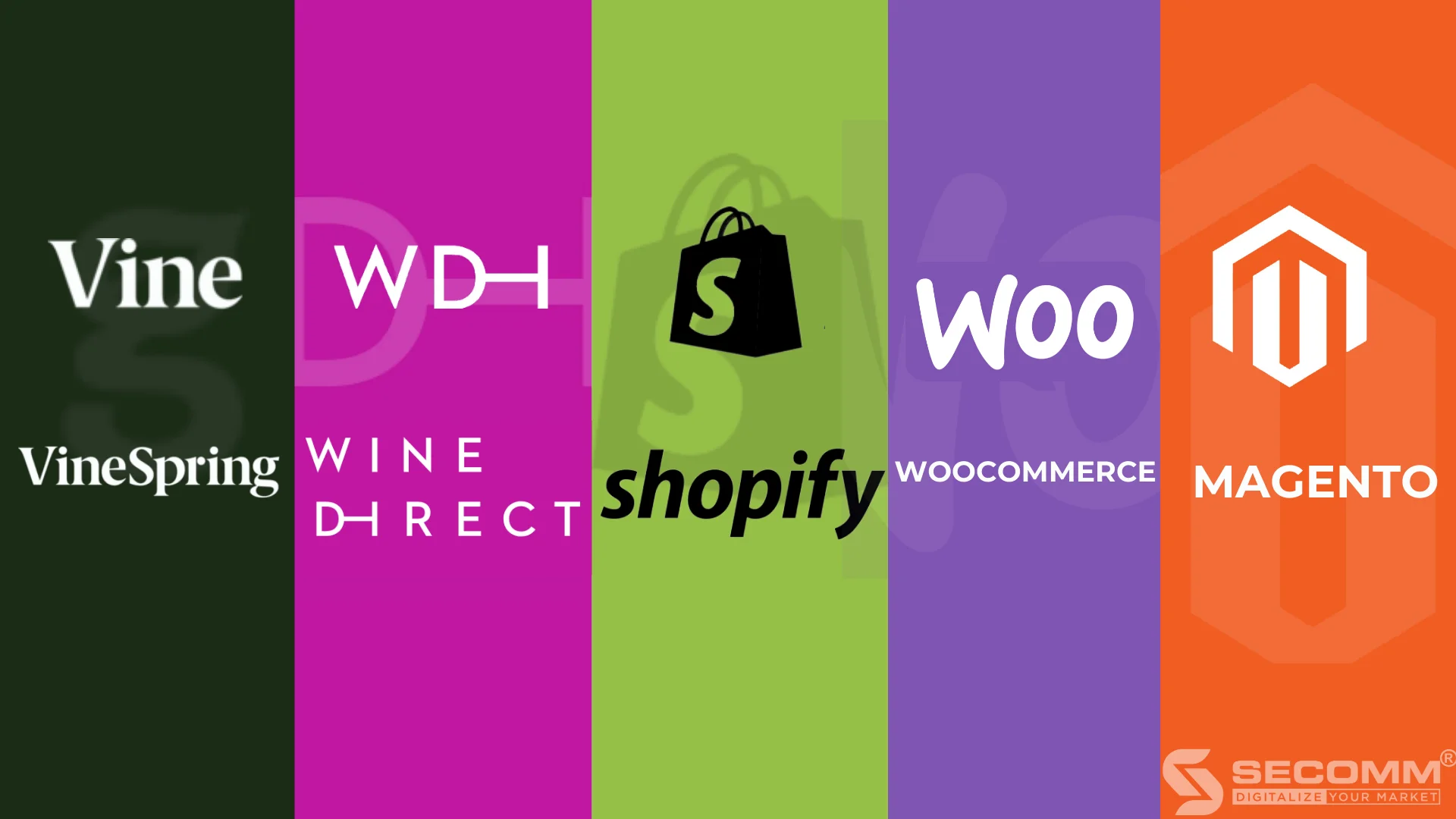
The electronic commerce market in the liquor industry is currently experiencing robust development and has become a dominant trend in many different countries. In 2021 alone, the number of alcohol consumers increased by 10–20%, and those following the trend saw a growth of 40–50%, indicating significant progress in eCommerce for the alcohol industry in recent times (according to Wine Intelligent).
Not only limited to user growth, the global eCommerce market for wine is expected to grow by 7.7% annually (according to Statista) and reach a value of 1.68 trillion by 2025 (according to Cision). This presents both an opportunity and a challenge for liquor businesses to grasp and develop a business model suitable for the changing market in the digital era.
To embark on an online liquor business, the selection of an eCommerce platform needs careful consideration and precise decision-making. Choosing the right platform aligned with the budget and objectives helps businesses save time in construction, utilise human resources efficiently, and save costs in building and developing the system. Simultaneously, it assists businesses in reaching a large customer base, boosting sales, and seizing sustainable development opportunities in the future.
Currently, there are primarily two types of eCommerce platforms on the market: open-source and service-based. Each type of platform has certain advantages and disadvantages, and businesses need to carefully weigh criteria that align with their business model to choose a suitable platform.
Wine products belong to the premium segment in modern life. Therefore, customers always prioritize high-quality visuals, and eye-catching, user-friendly interfaces in the eCommerce system that are easy to use and navigate.
Businesses in the liquor industry need to focus on conveying the product’s value message not only through a well-designed and user-friendly interface but also one that has high aesthetic appeal, with distinctive features to communicate the brand and product values to the specific target customers of the industry. This approach ensures a comprehensive user experience when using the eCommerce system.
eCommerce platforms should have a diverse range of features, from basic to advanced, and even specialized features tailored for the liquor industry. This facilitates the efficient and sustainable development of the eCommerce system for businesses. Basic features include management, storefronts, sales, information management, statistics, revenue control, customer lists, invoices, shopping carts, and checkout, as well as reporting and analysis.
Advanced features related to themes, products, marketing, optimized payment solutions, discounts, and shipping cater to the operational and developmental needs of sustainable eCommerce for businesses. Specialized features for the liquor industry may include product allocation, inventory control, membership management (Wine club memberships management), implementing customer loyalty programmes, and product-specific discounts based on business needs.
Read more: SaaS eCommerce platforms vs Open-Source eCommerce platforms
For a seamless online business system in the liquor industry, businesses often integrate eCommerce platforms with other software and technology platforms they currently use, such as payment systems, shipping, ERP, POS, CRM, marketing management, etc.
This requires the eCommerce platform to have flexible, seamless, and effective integration capabilities with this software without compromising the execution of each system. This integration not only helps businesses overcome manual operational limitations but also increases automation for both back-office management and sales processes, ensuring high accuracy and operational efficiency for the business’s development.
In addition to supporting Cash On Delivery (COD), platforms need to integrate various payment software, including local and international card options, payment gateways (Paypal, Stripe, One Pay, etc.), and digital wallets (Momo, ZaloPay, etc.). The chosen eCommerce platform should have the ability to seamlessly integrate this payment software with high security, safety, and efficiency.
For delivery and logistics, businesses can integrate service providers and popular transportation tracking applications, optimizing and streamlining delivery processes. Businesses can customize and develop delivery modes suitable for customers, ensuring a comfortable and convenient buying and receiving experience for users. Integrating payment and delivery software helps shorten the purchasing journey, optimize the user experience, and prompt customers to make decisions quickly.
Businesses can fully integrate third-party enterprise management software such as ERP, CRM, POS, etc., with the eCommerce system to support efficient and seamless multi-channel eCommerce operations. This synchronizes data on products, categories, orders, and user information across systems, simplifying and automating the back-office management and sales processes, ensuring high accuracy and operational efficiency for sustainable development.
In addition to the marketing tools available on the eCommerce platform, businesses can integrate additional marketing tools such as email marketing software (MailChimp, Drip, etc.), marketing analysis software (Google Analytics, Google Adwords Keywords, etc.), and social media management software (Buffer, Hootsuite, etc.). Marketing management software helps businesses deploy marketing campaigns, attract customers, and increase conversion rates, maximizing both eCommerce and overall business revenue.
Choosing an eCommerce platform in the liquor industry with high scalability is crucial for businesses to grow sustainably. The platform should seamlessly accompany the business through various business models, from entering eCommerce for the first time to expanding the business system. It should support diverse business models such as B2B, B2C, D2C, and B2B2C.
Furthermore, the platform should assist businesses in operating and expanding by supporting the management of multiple websites, catering to multiple countries, and handling various currencies, all within a unified system. Beyond that, platforms with high scalability not only support expansion but also ensure stable system operation even when the website experiences gradual increases in traffic over time or experiences sudden spikes in traffic during promotional campaigns.
VineSpring is an eCommerce platform created by experts with in-depth knowledge of the wine industry’s operations. As a result, businesses will have an online eCommerce system with specialized features for the wine industry.

VineSpring offers a rich interface library, collaborating with various unique website designers specifically for the online wine industry. This allows businesses to easily build their brand without needing extensive technological knowledge.
Understanding the present needs of businesses, VineSpring has developed and optimized its platform to operate flexibly on various media, from desktops and tablets to personal mobile devices. This ensures businesses have a multimedia online presence and provides the best shopping experience.
With a CMS system on the VineSpring platform, businesses can fine-tune content and essential product information, brand details, and success stories tailored to their business development needs. This enables businesses to have a highly interactive website and a friendlier user experience.
The platform also supports businesses in terms of product shipping. VineSpring can integrate additional shipping software (ShipCompliant and ShipStation), assisting businesses in controlling information and making order tracking easy for customers on the website.
VineSpring directly integrates with Square POS software through an available technical team. The VineSpring POS system has a “tap, chip, and swipe” feature, enabling businesses to process orders quickly and conveniently. Additionally, VineSpring can integrate CRM software (Salesforce) to provide efficient solutions for management, sales, and customer care.
VineSpring supports businesses in marketing through the integration of email marketing software (Mailchimp) for list management and the creation of email marketing campaigns, increasing automation in operations.
Vinspring has a system of basic and some advanced features sufficient for businesses to operate at a basic level. Especially, Vinespring has optimized inventory management features to save time, allowing businesses to access production history details, including information on bottling times, prices, and shipping units.
Vinespring is an ideal solution for developing a business’s recurring revenue model in the eCommerce wine industry. The platform provides businesses with specialized features, such as wine allocation management and wine club member management.
In addition to the mentioned advantages, Vinespring also has a dedicated customer care team. As a Software as a Service (SaaS) eCommerce platform, VineSpring places a strong emphasis on customer service through 24/7 online chat with experts and telephone support anywhere, anytime. Therefore, businesses will receive the best and fastest support to resolve technical issues, as well as applications, features, and the most convenient and suitable solutions.
VineSpring is a Software as a Service (SaaS) platform, so businesses need to pay a fixed monthly fee ranging from $99 to $399, depending on the service package, and may be higher based on business needs:
The VineSpring platform (SaaS) is suitable for wine businesses with limited experience in building eCommerce systems. However, the usage fees for this platform are relatively high for small and medium-sized businesses.
WineDirect is a Software as a Service (SaaS) platform designed for wine businesses with no experience in eCommerce platforms, helping manage every aspect of online sales and simplifying the business process.
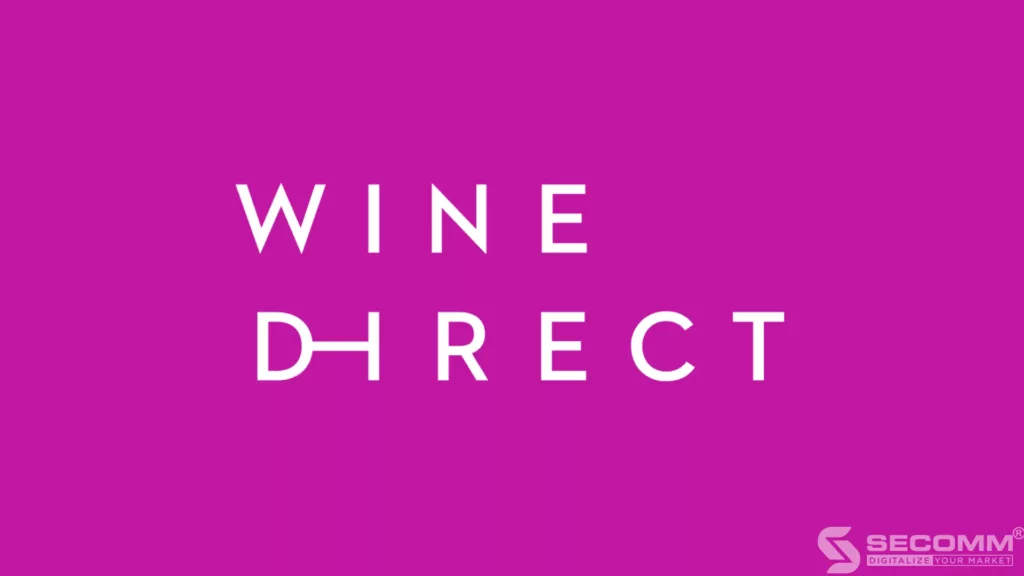
The WineDirect platform provides an intuitive, user-friendly interface tailored for businesses. Additionally, WineDirect offers a diverse range of free interface templates and features, facilitating easy development of the eCommerce system with just basic website development knowledge and skills.
WineDirect provides fundamental features such as website analytics, sales tools, and options for business event registrations to boost customer engagement. This allows businesses to save time and unnecessary costs associated with other software.
Businesses can possess essential information for creating customized offers and discounts tailored to each customer category, based on statistics gathered through integrated tools. Consequently, businesses can develop personalized shopping experiences and drive higher sales volumes, achieving outstanding results and meeting development needs.
The platform has leveraged and optimized the WineDirect application, specially designed for mobile devices and is highly flexible for the wine industry. Through the application, businesses can manage products, eCommerce systems, advertising campaigns on the website, and customer information.
WineDirect provides integrated payment solutions on the platform, enabling businesses to have a seamless experience across two payment software, such as WineDirect Payments for businesses in the US and Canada, and eWay Payments for businesses in Australia.
With payment software, businesses are supported in processing orders through the website or in-store. Regarding shipping, the WineDirect platform can integrate with various shipping services (UPS, FedEx, Gliding Eagle, etc.), assisting businesses with detailed shipping information for each order and enhancing automation in the shipping process.
The WineDirect platform can integrate with ERP software, as well as the POS of the business (WineDirect POS, Napa Valley, Oztera, etc.), aiming to synchronize data between the POS system and the eCommerce system, including orders, inventory, wine club members, customer information, helping businesses increase automation in the operational process and manage information effectively.
WineDirect has integrated available marketing tools on the platform to help businesses save time in system development. This includes providing businesses with access to real-time sales reports, allowing them to send emails based on customer groups depending on marketing campaigns.
The WineDirect platform is a SaaS (Software as a Service) eCommerce platform with three main pricing plans as follows:
Similar to VineSpring, the WineDirect platform (SaaS) is suitable for businesses of various models and sizes that lack extensive experience in building eCommerce systems and technology. However, one platform limitation is its high usage cost, which increases with the business’s monthly sales volume.
Beyond the high usage cost, operational tools on the platform may be unstable, occasionally displaying errors on the system, such as payment statuses showing as ‘pending processing’ on the business side but appearing as ‘paid’ on the customer side. Despite this, WineDirect has a dedicated customer support team that efficiently addresses business issues, making it a preferred choice for many businesses.
Shopify is a well-known giant in the field of building eCommerce systems as a Software as a Service (SaaS). The Shopify platform is favoured in the market for its user-friendly nature, quick system-building time, and low initial costs, making it suitable for a wide range of businesses.
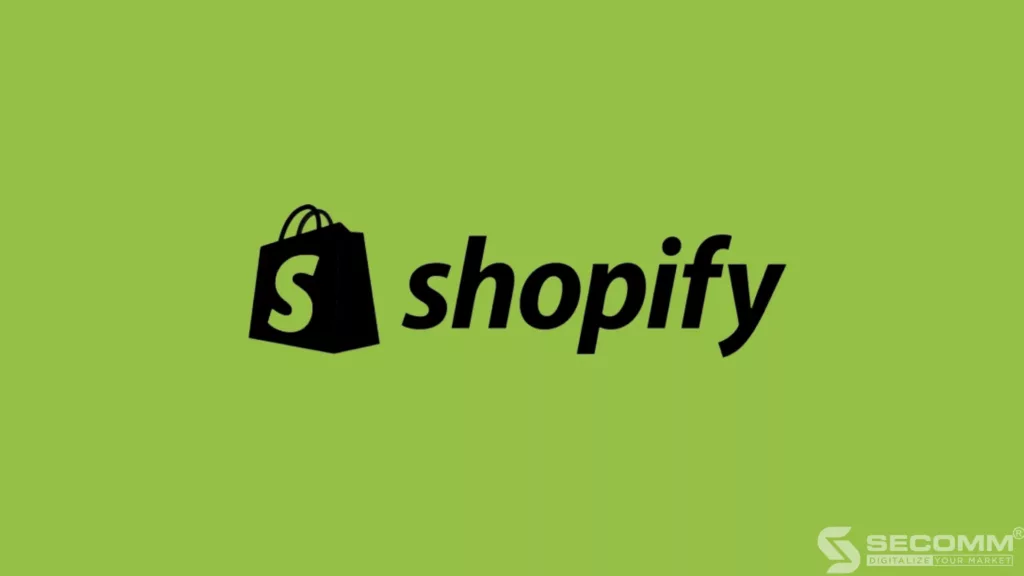
In terms of interface, Shopify provides many beautiful themes that are well-compatible across various devices. Businesses in the wine industry can choose from several specialized templates designed and offered specifically for online wine businesses by the Shopify platform. Additionally, businesses have the freedom to customize the interface by accessing HTML and CSS code to enhance the brand’s uniqueness. Therefore, businesses can deliver a seamless experience across different devices without affecting the user’s shopping process.
Basic and Advanced Features:
In addition to basic features related to orders, products, categories, and product management, the Shopify eCommerce platform allows businesses in the wine industry to access profiles and purchase histories to gather customer information. This enables businesses to personalize the shopping experience, from personalized content and product displays to the entire eCommerce journey.
This key aspect helps businesses make a positive impression on consumers and fosters a stronger relationship between both parties. Furthermore, with the mobile application developed by Shopify, businesses can control every aspect of the online store anytime, anywhere, including effective sales management, order fulfilment, and inventory management.
In addition to supporting direct payment features from the platform itself (Shopify Payment), Shopify also assists businesses in integrating other payment software such as Paypal, Stripe, SagePay, AliPay Global, etc. Regarding shipping software, Shopify collaborates directly with various major shipping service providers like USPS, UPS, and DHL to streamline the process and ensure more convenient shipping for businesses.
Shopify’s Global ERP Program provides businesses with a system that connects multiple eCommerce platforms with critical business databases such as finance and inventory to optimize operations and business processes. This program includes partnerships with leading global ERP providers such as Microsoft Dynamics 365, Business Central, Oracle NetSuite, Infor, Acumatica, and Brightpearl.
Shopify supports businesses in marketing through integrated software within the system. Examples include email software (MailChimp), sales channels (Facebook, Instagram), advertising (Google Ads), etc. Through these integrated marketing tools, businesses have the opportunity to increase sales, automate email marketing, and develop marketing campaigns tailored to specific customer groups.
Shopify has developed various service plans suitable for businesses to choose from based on their capabilities and scale:
In addition, Shopify has introduced other service plans to cater to diverse business needs:
Originally an industry giant in the Software as a Service (SaaS) eCommerce sector with characteristics of rapid system development time, as well as a startup cost suitable for many businesses and easy usability, this platform is suitable for small and medium-sized enterprises with limited experience in information technology.
However, in addition to the monthly fees for using additional utilities, Shopify also has limitations in terms of advanced features, unique features, and customization. Businesses must accept that certain features may not be available on the current website and may need to switch platforms when aiming to build a specialized system that aligns with their specific needs and ensures sustainable development in the future.
Read more:
WooCommerce is an open-source Content Management System (CMS) known as a plugin for WordPress, introduced in 2011. It is completely free and allows businesses to turn their WordPress website into an online store. Therefore, in addition to being suitable for customizing the interface, WooCommerce is also an ideal platform for businesses to have a website with a flexible blog section, high interactivity, and a more user-friendly experience.
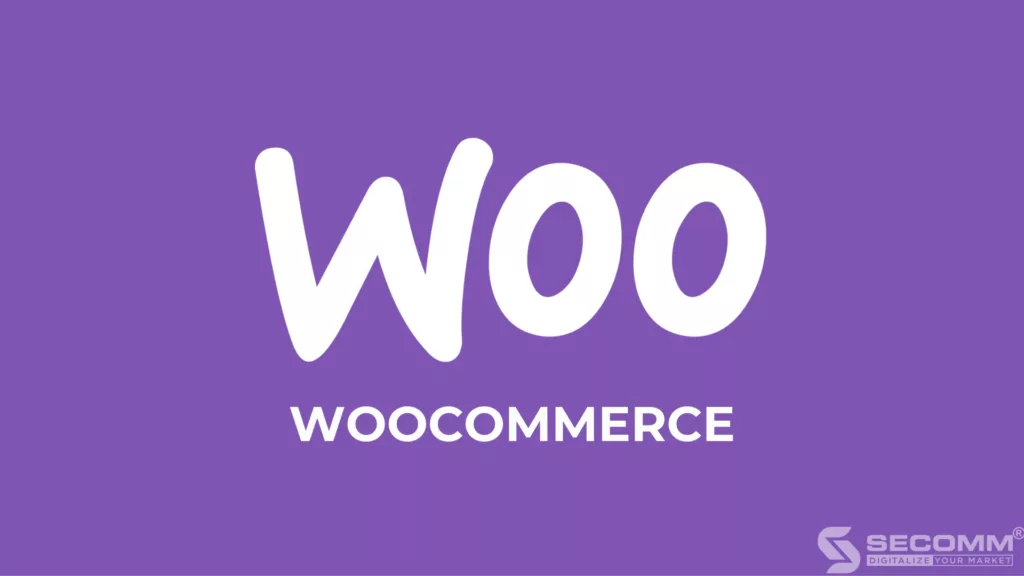
WooCommerce possesses and provides businesses with a rich library of forms designed for the wine industry, carefully crafted and user-friendly. Therefore, businesses can conveniently design and build an eCommerce system right from the beginning without needing in-depth technical knowledge
With the WooCommerce platform, businesses can integrate tools from management systems to features specific to the wine industry. For instance, the platform can integrate with Product Table, a tool that allows wine businesses to have an interface displaying product attributes and numerous high-quality product images, as well as filtering features.
WooCommerce allows and supports basic features such as inventory management, order processing, inventory optimization, SEO tools, discounts, price reductions, sales statistics reports, and easy integration with payment and shipping providers. In terms of advanced features, the WooCommerce platform supports businesses in the wine industry with opportunities for wholesale orders and discounts, boosting sales through the eCommerce system. However, the platform has some limitations in terms of specialized features for the wine industry, as making certain edits can potentially cause instability in the system.
For payments, businesses can use plugins to integrate payment gateways such as Stripe, PayPal, Apple Pay, and Square into the system, ensuring high security and safety.
Regarding shipping, businesses can integrate with various shipping providers that collaborate with WooCommerce, such as FedEx, UPS, and USPS, enabling efficient processing and optimization of the shipping process to provide the best shopping experience for consumers.
The WooCommerce platform allows and supports businesses with integrable business management software, typical examples being Odoo, Square POS, and WP ERP. This enables businesses to save time, and costs, improve business efficiency, and automate management processes.
Businesses can integrate marketing management software to support their operations, such as email marketing (MailChimp), advertising (Google Listings, Google Ads, Facebook), and analytics software (Google Analytics). This helps businesses increase traffic, promote repeat shopping, and optimize personalization for consumers.
The WooCommerce platform is an open-source platform, and thus, the platform itself is entirely free to use. However, businesses may incur development costs when utilizing the platform, such as domain registration fees ($15), hosting fees ($120/year), and system development costs (ranging from $3,000 to $10,000 depending on the complexity of the system).
WooCommerce is a suitable platform for wine businesses already familiar with WordPress and looking to expand their eCommerce systems, offering numerous basic features built with high availability from developers in the strong global community. However, WooCommerce is not perfect for businesses with a large number of products, as the system tends to be unstable with more than 2,000 SKUs.
The platform also has limitations in terms of customization and fine-tuning specific features because intervening adjustments can easily lead to system instability, and there is a high likelihood that the built-in features are not compatible with this platform. Additionally, to customize the system based on the available feature set, businesses may encounter significant difficulties and time-consuming efforts.
Magento is an open-source eCommerce platform known as one of the leading eCommerce platforms today, with many outstanding advantages such as high flexibility, a diverse ecosystem, and optimal security. Currently, Magento has two versions: Magento Open Source (free) and Magento Commerce (paid).
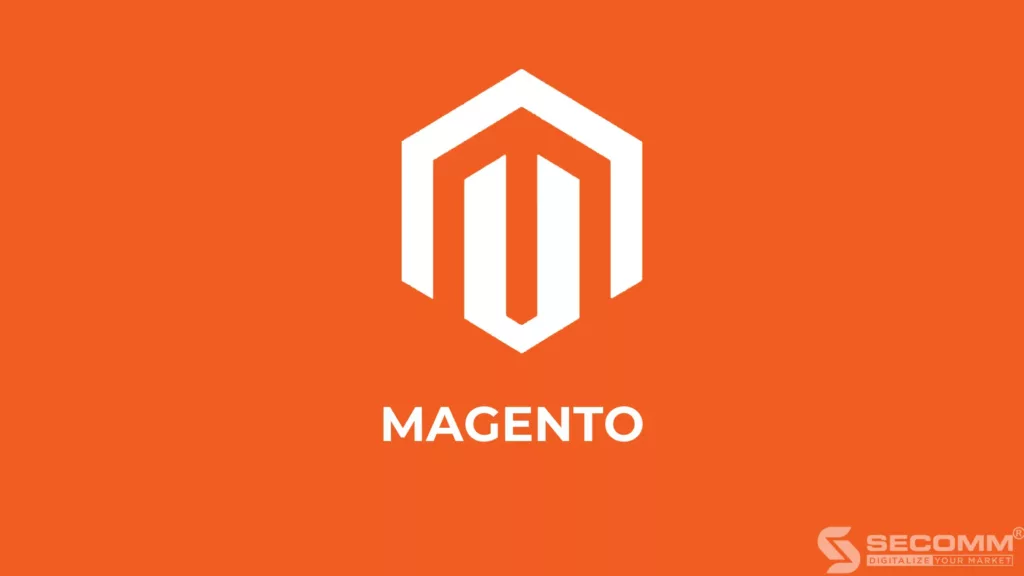
With the Magento open-source eCommerce platform, businesses may not have access to an extensive theme library as other eCommerce platforms do. However, businesses can fully customize the interface for a specialized eCommerce system, providing a comfortable user experience. To achieve this, businesses need an experienced technical team and careful investment.
The Magento eCommerce platform offers a highly diverse and advanced feature system, from basic to advanced, making it easy for wine industry businesses to quickly build and develop their systems in the short term and sustainably in the long term.
A variety of features ranging from Category Management, Content Management, Customer Management, Marketing Management, Order Management, Store Management, System Management, Cart and Checkout, to Reporting & Analytics.
Magento is known for its superiorly developed advanced features and extensions to meet the rapid development of the eCommerce market and the specialized requirements of each business. Thousands of advanced functions related to themes, products, marketing, optimal payment solutions, shipping, etc., have been built with flexibility and high availability, delivering outstanding results when integrated into the system, and meeting every operational and sustainable eCommerce development need of businesses.
Businesses can completely modify system functions, develop new specialized features to meet business needs, and quickly adapt to market changes. In addition, businesses can comfortably expand the scale of their business with the open-source Magento platform.
Regarding payments, wine industry businesses using the Magento eCommerce platform can integrate the most common payment methods such as card payments (ATM, Visa, Master…), e-wallets (Momo, Zalo Pay…), and payment gateways (OnePay, VNPay, PayPal, etc.), helping diversify the shopping payment experience.
For shipping, businesses can easily integrate with various shipping providers and popular shipment tracking applications on the market to optimize shipping and delivery processes. Additionally, wine industry businesses can develop shipping and delivery features tailored to their needs and customers to provide a convenient and fast delivery experience.
Magento is praised for its highly effective operation with most POS (Square…), CRM (Salesforce…), and ERP (SAP, Oracle, Odoo) systems. Through efficient integration of these software solutions, businesses can overcome manual operation limitations and increase automation for both back-office management and sales, ensuring high accuracy and operational efficiency for sustainable development.
For marketing management software, businesses can integrate various management software solutions, including email marketing (Mailchimp…), and advertising (Facebook, Google…), to support planning marketing programs, strategy setting, as well as handling and controlling data, seamless eCommerce business processes, and optimizing online business.
Additionally, Magento provides Magento BI tools or allows businesses to integrate with other Business Intelligence (BI) tools such as Power BI, Tableau, Looker, etc., to optimize business efficiency, easily consolidate and leverage data from the Magento system and other software for quick, efficient analysis and reporting, and to improve business strategy and growth optimization for the enterprise.
Inheriting the high scalability of the open-source platform, Magento can accompany businesses with every sustainable development business model, from newly established enterprises to expanded business systems, covering various business models such as B2B, B2C, D2C, and B2B2C.
Magento can support businesses to operate and expand into multiple websites, countries, and multiple currencies, and manage all within one system. Not only that, Magento also supports stable system operation even when the website experiences gradual or sudden increases in traffic over time or during peak periods in promotional campaigns, with the ability to handle up to 500,000 products and thousands of transactions per hour.
Magento is an ideal platform for any business venturing into the wine industry and implementing eCommerce. However, the cost issue is a significant obstacle, preventing most small and medium-sized wine businesses from choosing the Magento platform to build an eCommerce system.
According to estimates, a fully functional system developed on the Magento eCommerce platform typically incurs deployment and development costs ranging from $10,000 to $100,000 or more. In addition to the complex and advanced feature set, a crucial factor contributing to the higher deployment costs of Magento compared to other platforms is the requirement for an experienced and specialized team.
Magento is often the platform of choice for large businesses in the wine industry, whether B2B, B2C, or D2C, that already have an existing customer base and a long-term need for developing an eCommerce system. With this platform, businesses can continually develop components within the eCommerce system to ensure optimal operational efficiency and sustainable growth.
The high development costs, as well as the development timeline, which can range from 2-3 months to sometimes up to a year, are barriers that make it challenging for small and medium-sized businesses to comfortably choose Magento.
Choosing the right eCommerce platform is crucial in building an eCommerce system for businesses in the wine industry. This decision not only minimizes investment costs and shortens the time to build an eCommerce system but also helps businesses gain a competitive advantage in the industry and achieve sustainable growth.
On the other hand, an inappropriate platform choice can lead to significant time and cost investments for migration and platform conversion. Therefore, businesses need to consider their goals, and issues in the current model to choose the most suitable platform.
For small and medium-sized businesses, newcomers to the eCommerce market, or large businesses without the need to build a specialized eCommerce system, they can choose Software as a Service (SaaS) eCommerce platforms such as VineSpring, Winedirect, Shopify, or the open-source platform WooCommerce.
If businesses focus on industry-specific features such as developing a subscription revenue model and managing wine clubs, VineSpring and Wine Direct are suitable choices. WooCommerce is convenient for businesses that emphasize adjusting the interface. Shopify is suitable for businesses that want to quickly develop an eCommerce website with low initial costs.
For large businesses or those wanting to build a specialized eCommerce system tailored to the characteristics of their products, business model, or a platform that can accompany the sustainable development of the business, choosing comprehensive open-source platforms like Magento is necessary. With open-source platforms like Magento, businesses can develop special features, design interfaces freely, and not worry too much about the operating system.
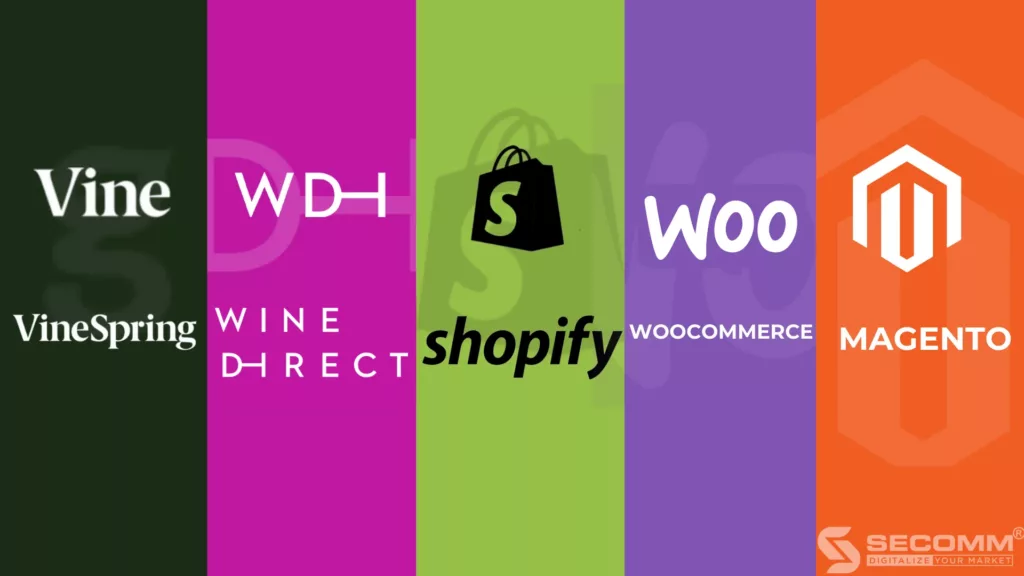
SECOMM confidently accompanies wine businesses on the path of deploying and developing sustainable eCommerce, with successful implementation experience for many wine businesses in various countries such as Singapore, the United States, Australia, Japan, and Vietnam.
Contact SECOMM for detailed advice on the development journey of the eCommerce system for your wine business!
 2
2
 8,081
8,081
 0
0
 1
1Subscribe to get the latest eBook!
Hotline